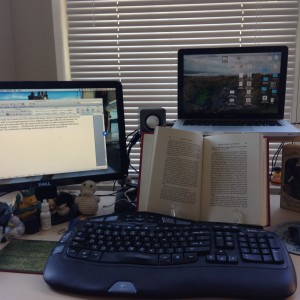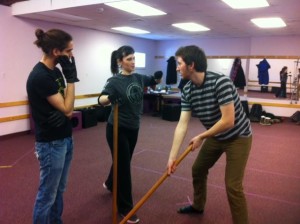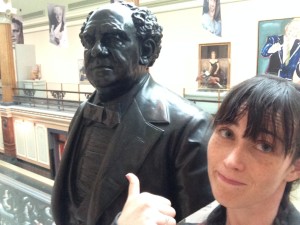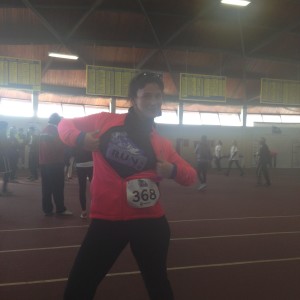Hello, gentle readers. I am currently writing you from my spot holed up in a hotel room in quiet and scenic Bethlehem, Pennsylvania; a place I had only ever heard of before because of the Billy Joel song that I’ve had stuck in my head since we arrived.
My partner has been traveling a great deal for his job lately. One of the many benefits of my insanely flexible schedule is that, since most of my work is reasonably portable, I can often pick up and ship out with him. As it turns out, being alone in the house with my computer, my books, and my fish for days on end isn’t the best thing for my sanity. As a result, whenever possible I take the opportunity to move my work with me. The crazy thing that I’ve found is that my gypsy life has made me much more productive. This is for several reasons:
- Distractions are at a minimum. Since there’s not much to do in a hotel room other than the things I bring with me, I am forced into a situation where I have to focus on checking items off of my to-do list. I don’t look around and feel the urge to clean or straighten anything. I don’t have to cook, so I don’t blow off early to start an overly complicated dinner routine just to be away from the desk. I do go for runs still, but those are necessary. It’s a pretty great win-all.
- Since I’m not at home, the usual at home requirements are on hold. I don’t have to suddenly go to a doctor’s appointment, or take my car to be inspected, or do a grocery run for some weird thing we forgot over the weekend. I don’t have to take out the garbage or recycling, or get the mail which might turn into a 20 minute distraction that takes an hour to re-focus from. I don’t have to deal with any household responsibilities that might take time away from writing. Again, I’m forced into a pressure-cooker situation with my work; my options are work on research or work on writing rather than work on work or work on life stuff.
- While the hotel is comfortable, it’s not my comfort zone. I don’t feel the siren call of my bed beckon to me at 3:00 PM because my bed is several states away. I don’t have a comfy couch to lounge on with some Netflix at lunchtime. If I want coffee, I can grab some in the lobby; but this doesn’t turn into a spontaneous round of let’s do dishes. I have everything I need, without having any extras.
- Any bad work-related habits I have are thrown off due to the lack of routine. Since my normal flight patterns are disrupted by not being at home, this means that I have the opportunity to create better ones in this space. When I find myself in a situation that strips me of my habits, I try my hardest to create new ones that are better than the old ones. This is particularly true when I’m in a space that’s temporary; I can be extra super diligent about working (you know, more than even usual) for a span of a few days and not allow myself the small distractions which can turn into big distractions because I can always go back to those “when I get home”. Being away gives me the unique opportunity to work out the kinks in my routine by completely scrapping the routine.
- Since I’m not exactly in a hopping, bustling city, I don’t have the kind of after-work distractions that can lead to fatigue or illness the day after. It’s not like I’m going bar hopping in Bethlehem Pennsylvania (or doing much of anything that will keep me out late). I can go to bed at a reasonable time, not feel like I’m being “lame” or missing out on something because of it, and wake up refreshed and ready to work the next day.
In short, if possible, I highly recommend taking your work on walk-about. Break up your routine in any way that you can (coffee shop visits, libraries, etc.) just to get yourself out of the house and observing your work habits. You might find that such “work-cations” lead to increased productivity and overall betterment of sanity.
Write strong, my brethren!









